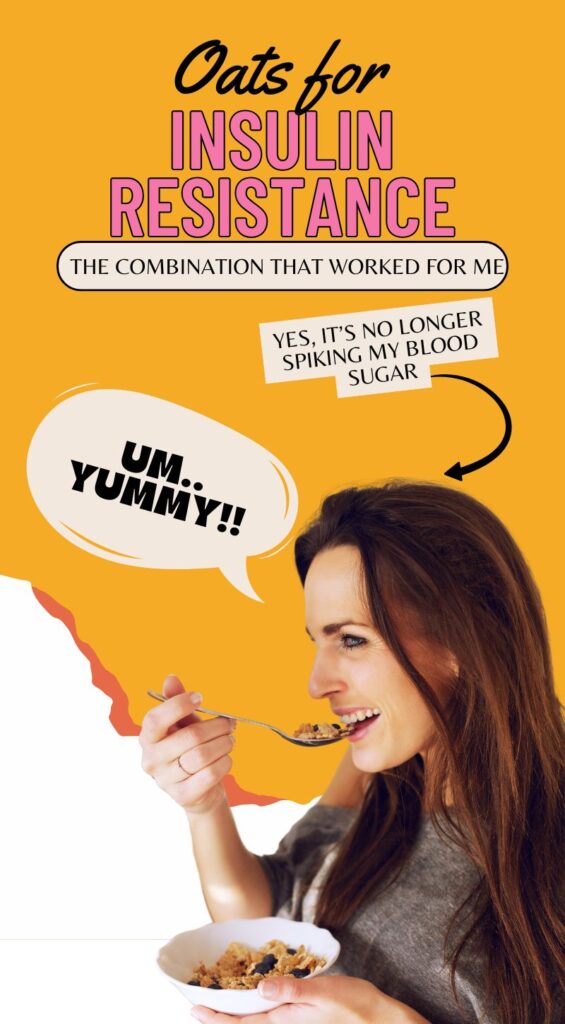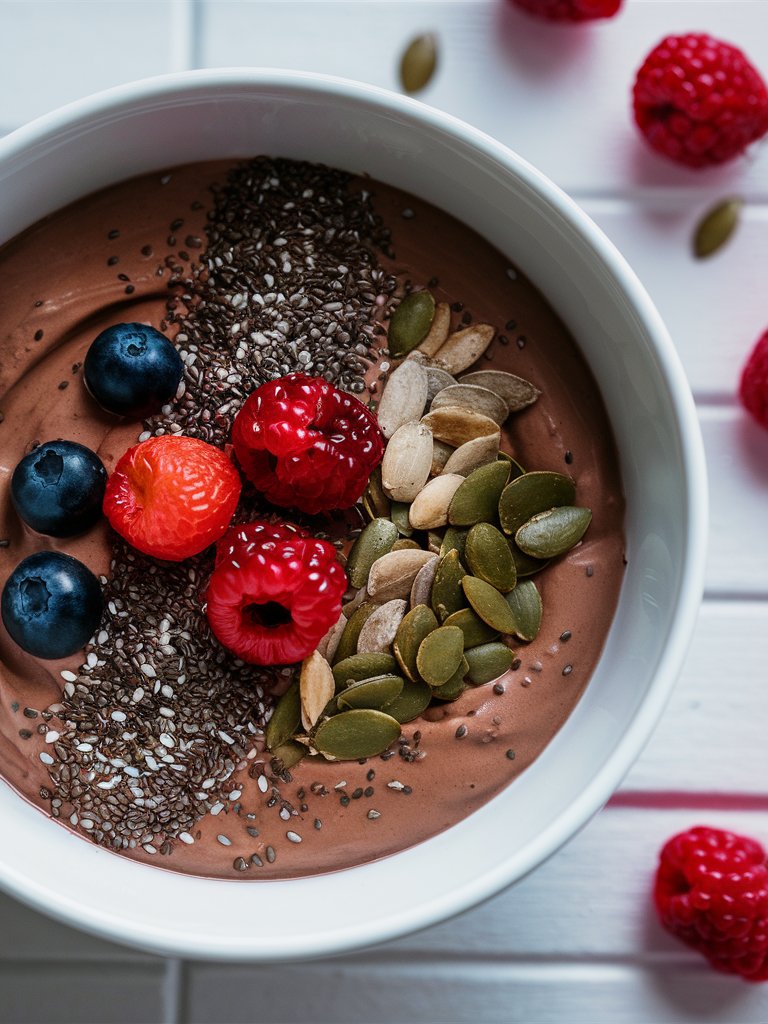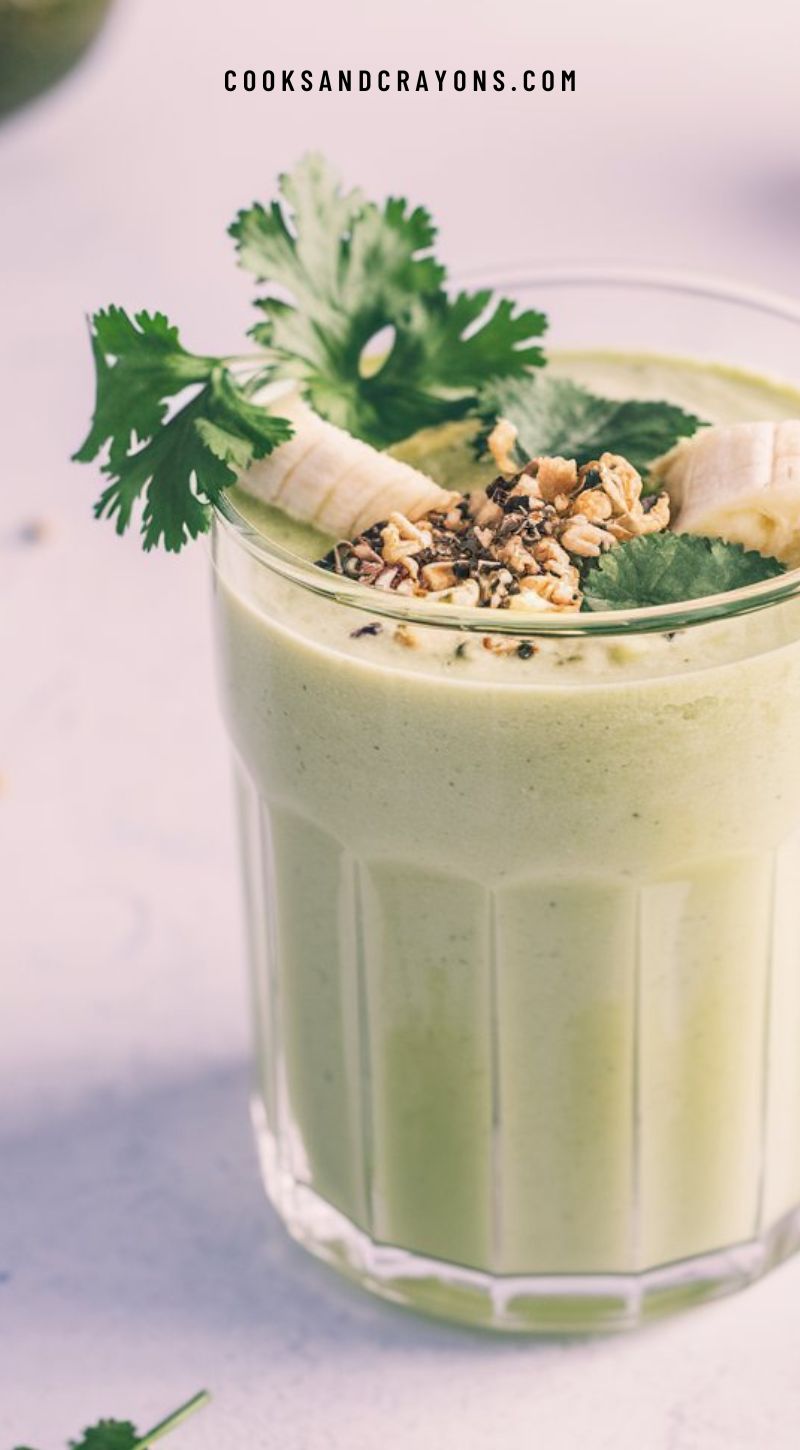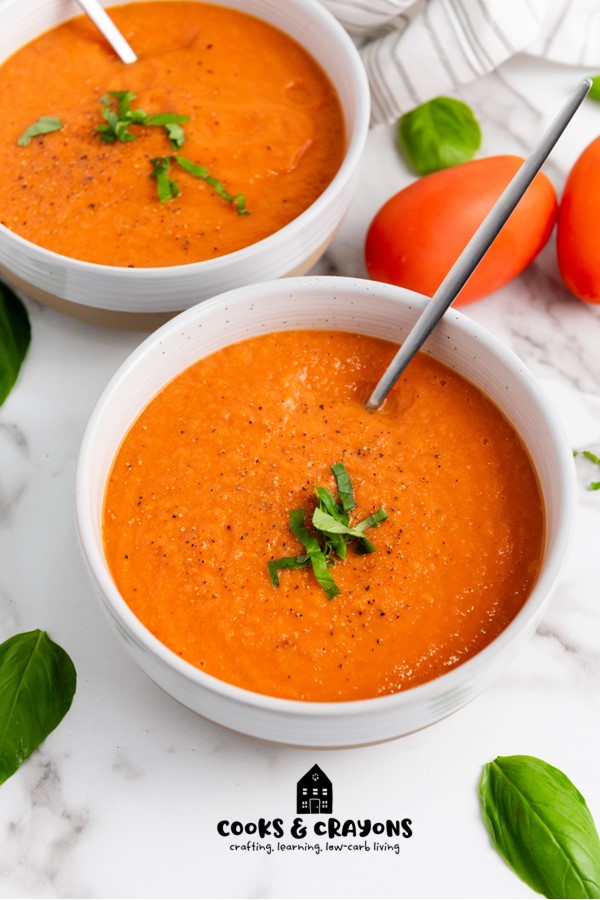Overnight Oats and Insulin Resistance: How I Curbed My Spikes
Find out how I managed my insulin resistance with overnight oats, curbed insulin spikes using apple cider vinegar, and boosted results by adding protein. A personal journey backed by science!
When I first started experimenting with overnight oats, I wasn’t sure how it would affect my insulin resistance. Overnight oats and insulin resistance always get a bad reputation (especially when mention them in one sentence), but believe me, after all this trial and error, I have managed a good recipe to be able to enjoy oats on a weekly basis and as it turns out, it is good for you and I’ll tell you why in this post.
Breakfast had always been a tricky meal for me—anything too carb-heavy would cause my blood sugar to spike, leaving me feeling sluggish and out of balance.
But after some trial and error, I found a combination that worked wonders: overnight oats, protein powder, and apple cider vinegar. Here’s how it all came together.

My Initial Struggles with Insulin Resistance
Insulin resistance is no joke—it can make even small changes in your diet feel overwhelming. For me, breakfast was the hardest to tackle. I wanted something quick, filling, and most importantly, balanced enough to avoid triggering those dreaded insulin spikes.
I kept hearing about how oats could be a healthy option due to their fiber and low glycemic index. But when I tried regular oatmeal, my glucose levels spiked more than I expected. That’s when I decided to give overnight oats a shot, tweaking the recipe to fit my needs.

The Game-Changing Oats for Insulin Resistance Recipe
Here’s the recipe that worked for me:
- Ingredients:
- 1/2 cup rolled oats
- 1 tablespoon chia seeds
- 1/2 cup unsweetened almond milk
- 1/2 cup Greek yogurt (for extra protein)
- 2 scoops of vanilla protein powder
- 1 teaspoon cinnamon
- 1/4 teaspoon vanilla extract
After mixing these together, I let them soak overnight in the fridge. In the morning, I’d top them with some berries or a sprinkle of nuts for added flavor and texture.
I also *at times* when I remembered, would have a tablespoon of apple cider vinegar, and walked for 20 mins 30 minutes after I ate and this helped curb my spikes down even further. It’s not until I managed to do all these things that I was able to finally enjoy it.
So really, doing the recipe above PLUS lifestyle changes are what really worked for me and I am sure that if you add even one of these things each week, that you’re going to see some changes.
The Role of Protein and Apple Cider Vinegar
Protein became a crucial addition to my overnight oats for insulin resistance. By adding two scoops of protein powder to my oats, I ensured my meal had enough to balance the carbohydrates and help slow down digestion.
This adjustment made a noticeable difference in how my body responded to the meal.
The other key player? Apple cider vinegar.
I had read about its potential to stabilize blood sugar levels, so I started drinking a small glass of water mixed with a tablespoon of apple cider vinegar before eating my oats.
This small step seemed to curb the insulin spike I used to experience.
The Results
The combination of overnight oats, protein, and apple cider vinegar helped me maintain steady energy levels throughout the morning. My glucose readings after breakfast improved significantly compared to my earlier attempts at eating oatmeal or skipping breakfast altogether.
While everyone’s experience with insulin resistance is unique, this approach worked wonders for me. It showed me that managing insulin resistance doesn’t mean giving up delicious breakfasts—it’s all about balance and personalization.
Do overnight oats spike blood sugar?
Whether overnight oats spike your blood sugar depends on how you prepare them. For me, I’ve tested this out like a scientist in a kitchen apron. When I made basic overnight oats—just oats and milk—my blood sugar climbed to around 6.5–7. But once I added in some protein (like a scoop of protein powder) and fiber-rich extras (chia seeds and flaxseeds, I’m looking at you), my blood sugar only went up to 5.9. That’s a big difference!
Why? The protein and fiber slow down how quickly your body digests the carbs in the oats, preventing a big sugar rush. Without them, it’s like sending carbs to a party with no supervision—they spike and crash. Adding toppings like nuts, seeds, or a dollop of almond butter makes oats even better at keeping your blood sugar stable.
So, now my overnight oats are more of a team effort—protein, fiber, and healthy fats work together to keep me fueled and balanced. No more sugar rollercoasters, just smooth sailing!
Some people think that oats are just a starchy carb, but I have found ways I can eat them safely throughout busy mornings on occasion. I still stick to my bacon and eggs breakfast most days! But when I feel like something sweet, I turn to low carb options made with almond flour and zero calorie sweeteners like this stevia brownie.
Tips for Others Trying Overnight Oats
If you’re considering overnight oats as part of your routine to manage insulin resistance, here are some tips that worked for me:
- Balance Your Macros: Add protein and healthy fats to your oats. Greek yogurt, chia seeds, and protein powder are great options.
- Watch Your Portions: Even healthy carbs can add up. Stick to a 1/2 cup serving of oats and add low-glycemic toppings like berries.
- Experiment with Add-Ins: Cinnamon and apple cider vinegar are both known for their potential blood sugar-stabilizing effects.
- Track Your Results: Use a glucose monitor to see how your body reacts. Everyone is different, so find what works best for you.
Finding a breakfast that worked for me was life-changing. Overnight oats for insulin resistance didn’t just give me a delicious and easy meal; it also helped me better manage my blood sugar levels. With the right tweaks, you can make this breakfast a part of your routine too.
If you’ve tried overnight oats or have other tips for managing insulin resistance, I’d love to hear about them in the comments below!

Studies on Apple Cider Vinegar and Insulin Resistance
Apple cider vinegar (ACV) has shown promising results in managing blood sugar and insulin levels, particularly for those with insulin resistance. Studies suggest that the acetic acid in vinegar can help improve insulin sensitivity and lower blood glucose levels after meals.
- Post-Meal Insulin Sensitivity: Research published in Diabetes Care found that consuming apple cider vinegar before meals improved insulin sensitivity by 34% in individuals with insulin resistance and reduced post-meal blood sugar levels significantly Diabetes JournalsDr Becky Fitness.
- Bedtime Vinegar and Fasting Glucose: Another study demonstrated that taking two tablespoons of vinegar at bedtime reduced fasting glucose levels by up to 4% in participants, particularly in those with higher baseline glucose readings. This effect is attributed to slower gastric emptying and alterations in glucose metabolism Diabetes JournalsDr Becky Fitness.
- Animal Studies Supporting Mechanisms: Studies on diabetic mice showed that ACV reduced blood sugar spikes, potentially by slowing carbohydrate digestion and enhancing glycogen synthesis in the liver Diabetes Journals.
To integrate ACV into your diet safely, consider diluting it in water to prevent irritation to your throat or teeth. A dose of 1-2 tablespoons per day, consumed before meals or at bedtime, is typically recommended by researchers.
For more detailed insights, you can refer to studies in Diabetes Care and other research summaries that highlight the benefits of vinegar for blood sugar control. Diabetes Journals






